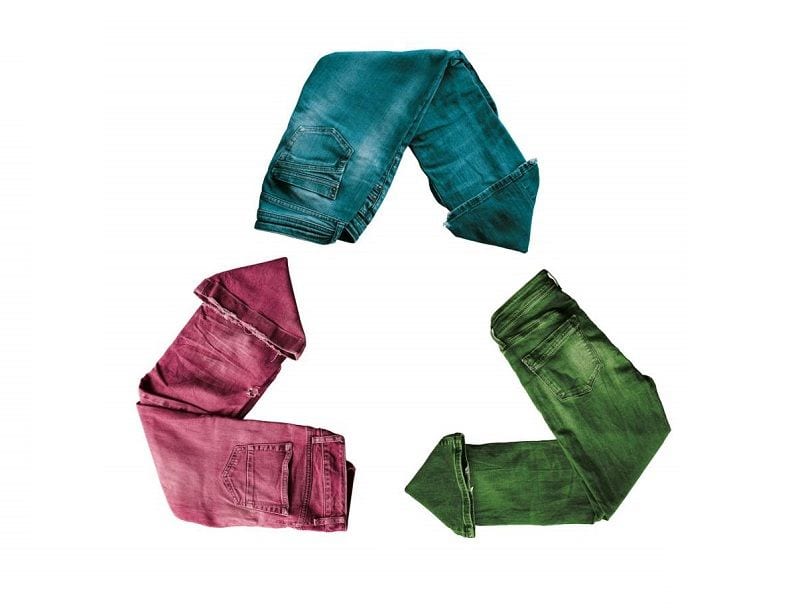Cape Town Sustainable Fashion Designers Leading the Green Activity
Wiki Article
Remain Ahead of the Contour by Discovering Ingenious Style Fads
In a market as dynamic as fashion, remaining in advance involves more than just adhering to current patterns-- it demands an exploration of innovation. Smart fabrics, for instance, are transforming garments right into functional masterpieces, while 3D printing is revolutionizing design processes with its customizable, waste-reducing capabilities. As sustainability comes to be a cornerstone, technologies like environmentally friendly products and circular style techniques are improving ecological duty - Cape Town Sustainable Fashion. In addition, the merging of technology and style heralds a new age of consumer involvement. Just how, then, can these emerging fads redefine the future of fashion, and what implications do they hold for brand names looking for to prosper in this evolving landscape?
Welcoming Smart Textiles
In the last few years, the fashion business has actually seen a transformative change with the integration of smart textiles, a cutting-edge innovation that blends modern technology with textile. This advancement represents not only a fusion of aesthetics and performance yet additionally a considerable jump in the direction of sustainability and customization in fashion. Smart fabrics, likewise referred to as e-textiles, embed innovative electronic devices such as sensing units and conductive strings within the fabric, enabling garments to engage with the user or the setting.These fabrics are made to keep track of physical criteria, such as heart rate or body temperature level, supplying real-time health and wellness analytics. Past wellness applications, wise textiles are likewise being made use of for adaptive clothing, which can change shade or pattern in action to environmental stimulations, thus providing a vibrant style experience.
In addition, the advancement of energy-harvesting fabrics that generate power from movement or sunlight is leading the way for self-sufficient wearable innovation. This development is attracting eco conscious customers and designers intending to minimize the ecological footprint of style. As research study and growth in this area advancement, wise textiles are expected to come to be increasingly prevalent, improving the landscape of modern-day style with their multifunctional capabilities.
The Rise of 3D Printing
Reinventing the manufacturing landscape, 3D printing has emerged as a game-changer in the garment industry. This cutting-edge innovation has actually allowed developers to press the borders of imagination, creating detailed and personalized garments that were formerly inconceivable. By leveraging digital style and additive production, 3D printing facilitates the development of complex geometries and patterns, enabling designers to trying out brand-new structures and frameworks.A significant benefit of 3D printing in style is its capability to produce on-demand, reducing waste and reducing stock demands. This performance not just maximizes manufacturing processes yet also permits quick prototyping, enabling developers to bring their visions to life in a shorter duration. Additionally, 3D printing supports personalization to a degree unrivaled by conventional methods, supplying distinct layouts and individualized fits customized to private consumer preferences.
The rise of 3D printing has likewise democratized style, making it available to arising developers that can currently produce premium pieces without considerable economic investment in typical manufacturing framework. As technology continues to development, the garment industry is poised to harness the complete potential of 3D printing, exploring new products and methods that will unquestionably redefine just how style is conceived and generated.
Sustainable Fashion Technologies
As the apparel industry grapples with the pressing demand for ecological obligation, lasting style technologies have emerged at the forefront of transformative change. The growing awareness of environmental effect has actually fueled a change in the direction of more eco-conscious techniques and materials. Brand names and developers are currently prioritizing sustainability, including techniques that minimize waste and lower carbon footprints.One significant development is the increase of round style, which emphasizes recycling and upcycling to extend the lifecycle of garments. This technique not only reduces waste however additionally encourages consumers to embrace an extra conscious method to garments intake.
An additional breakthrough lies in the adoption of ingenious dyeing methods that utilize natural dyes or waterless processes, thereby decreasing the huge amounts of water and chemicals typically utilized in textile dyeing. Furthermore, developments in biotechnology have brought about the production of lab-grown natural leather and textiles, using eco pleasant and cruelty-free options to conventional materials. Via these introducing initiatives, his comment is here the style market is making meaningful strides in the direction of a much more sustainable future.

Tech-Integrated Apparel
Tech-integrated clothing stands for a groundbreaking combination of style and innovation, improving how individuals engage with their clothing. This innovative domain is marked by the addition of clever fabrics and embedded digital components, enhancing both performance and visual allure. From fitness trackers embedded in sportswear to warmed jackets regulated through mobile phone applications, tech-integrated garments uses consumers unprecedented convenience and adaptability.Introducing brand names are driving this trend, concentrating on producing garments that react to ecological stimuli or individual commands. As an example, some garments can change color or pattern in feedback to temperature level shifts, while others integrate biometric sensing units to keep track of wellness metrics like heart rate or stress and anxiety levels. The smooth integration of modern technology into textiles additionally reaches ecological sustainability, with initiatives to develop self-cleaning fabrics or garments that get used to climate condition, therefore reducing the need for multiple layers.
Additionally, the introduction of wearable technology is not simply restricted to clothes however prolongs to accessories like watches and eyewear, further broadening the extent of tech-integrated fashion. As the industry remains to innovate, the capacity for modification and customization in garments grows, supplying customers one-of-a-kind, tech-enhanced fashion experiences that cater to their private requirements go to website and choices.
Future of Virtual Style
Recently, the future of online style has actually emerged as a transformative force within the market, leveraging developments in digital innovation to redefine just how why not try these out fashion is developed, experienced, and taken in. By incorporating enhanced truth (AR), digital fact (VIRTUAL REALITY), and 3D style tools, designers can currently craft interactive and immersive experiences that transcend traditional fashion borders. Online fashion allows for the development of garments that exist solely in electronic atmospheres, offering limitless possibilities for advancement without the constraints of physical production.This digital change not just provides opportunities for imaginative expression but likewise addresses sustainability problems intrinsic in traditional style techniques. Cape Town Sustainable Fashion. By getting rid of the demand for physical resources, digital fashion minimizes waste and minimizes carbon impacts. Furthermore, the surge of digital style aligns with the enhancing consumer demand for tailored and unique experiences, as digital garments can be customized and customized to individual choices with convenience

Verdict
The fashion market's future lies in the integration of lasting practices and innovative innovations - Cape Town Sustainable Fashion. Smart fabrics and tech-integrated clothing are improving functionality, while 3D printing supplies opportunities for customization and waste decrease. Lasting fashion, via environment-friendly products and circular strategies, demonstrates a commitment to environmental stewardship. Furthermore, virtual fashion is positioned to redefine consumer communications. Adapting to these fads is necessary for brand names looking for to continue to be pertinent and affordable in this rapidly evolving landscape.In recent years, the style industry has actually experienced a transformative shift with the assimilation of smart fabrics, an innovative technology that blends innovation with material.As the fashion sector grapples with the pushing need for environmental duty, lasting fashion advancements have actually arised at the center of transformative adjustment.In current years, the future of digital style has actually emerged as a transformative force within the industry, leveraging advancements in electronic technology to redefine how fashion is produced, experienced, and eaten. The rise of digital style lines up with the enhancing consumer demand for distinct and tailored experiences, as virtual garments can be tailored and customized to specific choices with simplicity.
The style market's future lies in the combination of cutting-edge technologies and lasting practices.
Report this wiki page